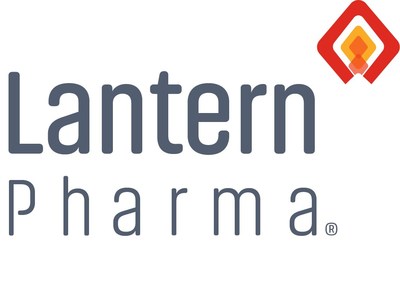Lantern Pharma (NASDAQ: LTRN), a clinical stage biopharmaceutical company, announced today that a successful preclinical study has shown its drug candidate LP-184 is able to inhibit tumor growth and improve survival in animal models of glioblastoma (GBM).
|
DALLAS and BALTIMORE, Aug. 19, 2021 /PRNewswire/ -- Lantern Pharma (NASDAQ: LTRN), a clinical stage biopharmaceutical company, announced today that a successful preclinical study has shown its drug candidate LP-184 is able to inhibit tumor growth and improve survival in animal models of glioblastoma (GBM). This study was conducted in collaboration with the research group of John Laterra, M.D., Ph.D., at Kennedy Krieger Institute, which is affiliated with Johns Hopkins University. Lantern had previously announced the initiation of this GBM focused collaboration with Dr. Laterra in December of 2020. Recent in vitro and in vivo data from this collaboration on the efficacy of LP-184 in GBM cell lines, patient-derived neurospheres and mice models validated in-silico predictions generated by RADR® on the efficacy of the drug candidate. RADR® is Lantern's proprietary machine learning-based artificial intelligence platform that integrates data analytics, experimental biology and large-scale genomic analysis to transform the cost, pace and timeline of oncology drug discovery and development. In the research done with Johns Hopkins, LP-184 treatment induced tumor regression evidenced by greater than 106% tumor growth inhibition in two subcutaneous xenograft models of GBM (U87 and M1123). LP-184 also prolonged survival in mice bearing an intracranially implanted tumor model of GBM (U87), as compared with those that did not receive any drug substance. Intravenous administration of LP-184 over two cycles reduced subcutaneous xenograft tumor volume in mice by greater than 85% within the treatment group. In the orthotopic GBM xenograft tumor model in mice, a single cycle of LP-184 resulted in a statistically significant (p < 0.0001) extension of median overall survival in the LP-184-treated group (42 days) versus the control group (33 days). Lantern expects to further refine the dosing regimen and cycle in the next phase of work with the expectation that additional improvements in survival can be translated into human clinical trials. Results from this ongoing translational research program highlight the promising in vivo anti-tumor effect of LP-184 in multiple GBM xenograft models and are expected to help guide the clinical application and focus of the drug candidate. Data from this study will be used to power future insights and analyses provided by RADR®, in addition to further enhancing the signature of response for LP-184 in genomically-defined GBM. Additionally, these findings are expected to support Lantern Pharma's orphan drug designation application to the FDA for the use of LP-184 in the treatment of glioblastoma. The study's observations and detailed results are being prepared for peer-reviewed publications and scientific conferences. GBM is a rare disease with an overall five-year survival rate of 5%. This means that only approximately 5 in 100 people survive GBM for five years and beyond. In 2020, 12,000 new GBM cases were diagnosed in the U.S. and more than 154,000 new cases were diagnosed worldwide. LP-184 acts by damaging DNA selectively in tumors that express high levels of the enzyme PTGR1. RADR-driven analyses have identified, in clinical databases, GBMs with elevated PTGR1 expression and harboring defects in DNA damage repair pathways as a targeted subset of genetically defined patients who could potentially benefit from LP-184-based therapy. "This new data reinforces that LP-184 may have clinical utility for the treatment of primary and metastatic brain cancers," says Panna Sharma, Lantern Pharma's chief executive officer. "We believe that LP-184's molecular features and distinct mechanism of action, anti-tumor efficacy and strong correlation with specific biomarkers have the potential to provide a unique and powerful approach aimed at addressing high unmet needs in GBM and other aggressive CNS tumors. With this exciting data, we look forward to continuing our work with Dr. Laterra evaluating the potential of LP-184 as a new, potent treatment option for GBM, especially in areas not adequately addressed today, including MGMT-unmethylated, TMZ-resistant, EGFR-aberrant and recurrent GBMs associated with poor prognosis." Based on these observations, Lantern recently extended and expanded its collaborative agreement with Kennedy Krieger Institute and Johns Hopkins. The objectives of the expanded agreement include further validation of in-silico and other experimental results that support the observation that LP-184 can be an effective treatment in GBM regardless of MGMT (a DNA repair enzyme) status of the cancer. This has significant potential to provide a much-needed alternative to the standard-of-care drug, temozolomide (TMZ), especially in GBMs that over-express MGMT — which can be up to 50% of GBM cancers. These patients that have GBMs that over-express MGMT are generally unresponsive to TMZ and need new therapy options that can exploit other molecular pathways and mechanisms. Development of an agent with efficacy in GBM, regardless of its MGMT methylation status, would be an important advance towards addressing a critical gap in the current standard of care. Lantern's RADR® platform has also identified a subset of GBM with a low expression of nucleotide excision repair (NER) genes as being responsive to LP-184. Since NER is a critical mechanism for the repair of DNA damage induced by LP-184, the collaboration will further examine the enhanced sensitivity of this subset of GBM cancers to LP-184. In parallel, Lantern is also engaging in an additional study with Johns Hopkins to determine the pharmacokinetics and pharmacodynamics of LP-184 as it relates to the central nervous system (CNS) which has the potential to help uncover additional CNS cancers where LP-184 can play a key therapeutic role. This research at the Kennedy Krieger Institute is being conducted in collaboration with Dr. Laterra, a professor in the Departments of Neurology, Neuroscience and Oncology at The Johns Hopkins University School of Medicine and a research scientist at Kennedy Krieger Institute. He is the director of the Division of Neuro-Oncology in the Department of Neurology at Johns Hopkins. Dr. Laterra's laboratory focuses on the cellular and molecular biology of primary brain tumor malignancy, with the combined goals of defining basic mechanisms and translating these discoveries into experimental therapeutics. He is particularly interested in the molecular mechanisms, as well as the potential therapeutic interventions, to reverse glioma cell growth and survival pathways, and in the functioning of the blood-brain and blood-tumor barriers. About Lantern Pharma Forward-looking Statements CONTACTS: Investor Relations Public Relations
SOURCE Lantern Pharma |
||
Company Codes: NASDAQ-NMS:LTRN |





